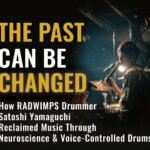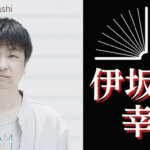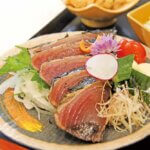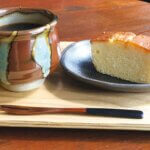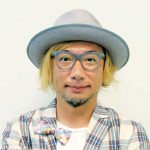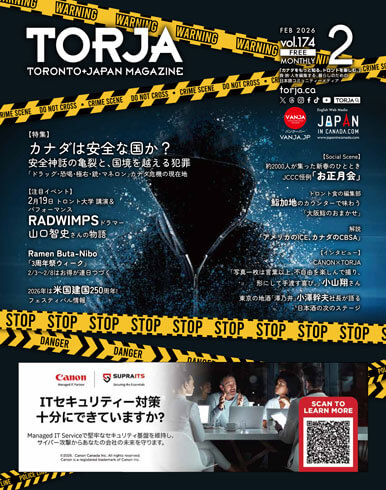On April 1st, Chief Cabinet Secretary Yoshihide Suga of Japan revealed new imperial era’s name by holding up a board with characters ‘Reiwa’ on it. The term for the new era is made up of the two kanjis, Rei (令) and Wa (和). The name is chosen by the cabinet rather than the emperor, from a short list proposed by a panel composed of experts from various fields. Suga said he hoped the new name “will be widely accepted by the people and deeply rooted in life in Japan.” The new era will start on May 1, following the abdication of Emperor Akihito and ascendant of Crown Prince Naruhito to the Chrysanthemum Throne.
Role of Imperial Era System in Japan
Japan is the only country in the world that uses the era name system which has its roots in China. The reign of each emperor is accompanied by a name for his term, and the name of eras that comprises of two kanjis figures in daily life on coins, official documents, newspapers, licenses and occasionally calendars. One third of the Japanese population uses the Japanese system of era regularly, according to a survey conducted by Mainichi Shimbun.
Each name of era aims to set the tone for the upcoming decades. The current period, Heisei (平成) means “achieving peace”. Heisei began in 1989 when Emperor Akihito succeeded his father and the word was taken from two Chinese history and philosophy books, Records of the Grand (Shiji) and the Book of Documents (Shujing).
What does ‘Reiwa’ mean?
At a press conference to explain the meaning of the new name, Prime Minister Abe explained “Like the flowers of the plum tree blooming proudly in spring after the cold winter, we wish the Japanese people to bloom like individual flowers with the (promise of the) future. With such a wish for Japan, we decided upon ‘Reiwa.’”
However, analysts are having difficulty defining the new name due to the nature of kanjis that could be understood in multiple ways. BBC has translated Rei as “order” and “command”, and Wa as “peace” and “harmony”. Wall Street Journal and The Guardian has translated the characters as “auspicious peace”, while ABC News has reported that they are unsure of the exact definition of the characters.
While many Japanese had positive reaction about the new name, it offends some, particularly young people, as Rei is often used to mean “command(命令)”, conveying an authoritarian tone. Prime Minister Shinzo Abe and his government prefers it meaning “good” or “beautiful” which is a less known sense, but some reads it as “giving in to orders” and are reminded of militarist era.
Jeff Kingston, director of Asian studies at Temple University in Tokyo commented to CNN, “the choice of the name mirrors the rightward trend in Japanese politics”. Kingston mentioned that the choice of the ‘wa (和)’ character is the same as the kanji used for the Showa (昭和) era of Naruhito’s grandfather, Emperor Hirohito, which could be “consistent with Abe’s ongoing efforts to try to promote a more positive narrative of Japan’s wartime past.”
Dave Spector, a TV producer in Japan criticized the selection of word as sounding “condescending” according to Yahoo! Japan News, and he stressed that it also reads as “you must follow command for peace”.
Breaking the Tradition (but there’s a plot twist)
It is the first time a new era’s name was taken from an old anthology of Japanese poems, the Manyoshu (Collection of Ten Thousand Leaces) instead of a Classic Chinese literature. It has been the custom to select from a Chinese literature for the last 247 names from Taika era to Heisei era (645-2019). Prime Minister Abe addressed Manyoshu as “a national book symbolizing Japan’s rich national culture and long traditions,” and stressed that “the name signifies the importance of the country’s culture and the harmony of its citizens.”
He told local reporters, “Our nation is facing up to a big turning point, but there are lots of Japanese values that shouldn’t fade away.” Many politicians in conservative parties and critics who hold similar political stance are content with Prime Minister’s decision with the new name.
新元号は「令和」に決まった!『万葉集』から取ったらしい。自分たちの期待する通り、中国古典ではなく日本古典からである。歴史に残る、画期的な新年号の制定。これからはわれわれは、令和の日本人として生き、この誇り高い国を守って行くのだ!
— 石平太郎 (@liyonyon) 2019年4月1日
“The new era’s name is decided upon ‘Reiwa’! It was selected from Manyoshu. As we all anticipated the new name to be, it was taken from Japanese classical literature instead of Chinese classical literature. This landmark selection of the name would go down in history. From now on, we will live as Japanese citizens of ‘Reiwa’ and protect this honorable country!” said Seki Hei, a critic.
新元号「令和」は万葉集を出典としています。1300年以上の我が国の元号の歴史の中で、これまでは中国古典を用いてきました。日本古典から元号を立てるのは初めてのことです。新しい伝統になることでしょう。
— 竹田恒泰 (@takenoma) 2019年4月1日
“The new era, ‘Reiwa’ is a word from Manyoshu. From a historical point of view, for the past 1300 years our country has selected era’s name from Chinese classical literature. It is the first time a name is chosen from a Japanese classical literature and it is setting a new tradition,” said Tsuneyasu Takeda, a political pundit.
In contrary to the hype of rightward politicians and pundits, there are academia and Twitter users pointing out that the new name’s root is from an ancient Chinese poetry, Return to the Field(歸田賦) which was written by Zhang Heng(AD 78–139), an official, inventor, mathematician, and astronomer of the Han Dynasty of China. As early works of Japanese literature were heavily influenced by cultural contact with China and Chinese literature, often written in Classical Chinese, many users point out that it is extremely difficult to avoid words that don’t originate from Chinese literature.
「令和」の出典が実は漢詩からも求められるらしい…。『帰田賦』張衡 (87-139)
「於是仲春令月 時和気清 原隰鬱茂 百草滋栄」(是に於いて 仲春の令月 時は和し気は清む 原隰し鬱茂し 百草 滋栄す)
うーん。だから国書から出典は難しいと…。
— ろだん 論壇net (@rondan_net) 2019年4月1日
“The word, ‘Reiwa’ originates from an ancient Chinese poetry, Return to the Field(歸田賦). This is why selecting from a Japanese literature is difficult,” one Twitter user said.
Another controversy is circulating around original Chinese poem: Return to the Field written by Zhang. The poem was written as Zhang happily went into retirement in 138, after retiring from the corrupted politics of the capital Luoyang. His poem reflected the life he wished to lead in retirement while being away from corruption lead by Emperor An of Han(安帝), an emperor of the Chinese Han Dynasty ruling from 106 to 125, who coincidentally (or not) share the same character as Prime Minister Abe (安倍).






